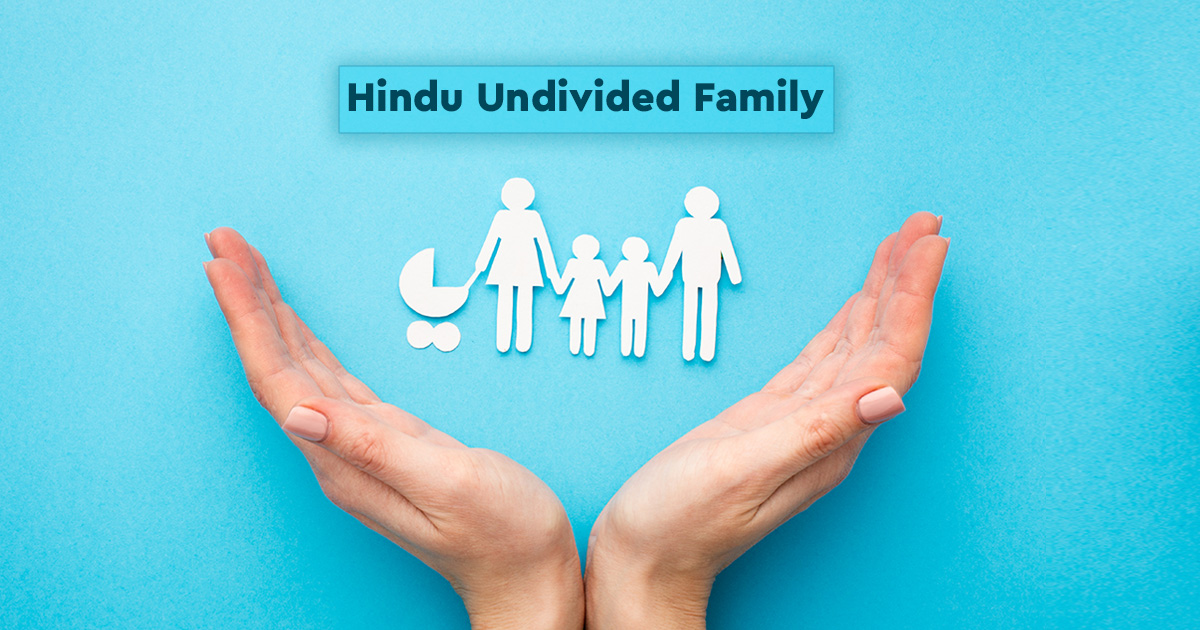A HUF is a specific form of family business structure prevalent in India, governed by Hindu Law. It is an extended family consisting of a common ancestor, generally spanning several generations along with their wives and unmarried daughters. The uniqueness of an HUF lies in its recognition as a separate legal entity for the purpose of income tax laws, enabling optimized tax planning and savings for the family.
Formation of a HUF
The roots of HUF lie in the Hindu Succession Act, and its provisions are extended to Jains, Buddhists, and Sikhs. The formation of an HUF can be initiated when a Hindu male gets married; this automatically creates an HUF with the male as the Karta (head) of the family.
Steps to form an HUF
- Membership: To form an HUF, there must be a minimum of two members, and the family should consist of a common ancestor and all lineal descendants, including their wives and unmarried daughters.
- Declaration: A formal deed, written on a stamp paper, must be drawn up which includes the details of the Karta and coparceners (members with inheritance rights).
- PAN card and Bank Account: Obtain a Permanent Account Number (PAN) and open a bank account in the name of the HUF.
Legal Status and Governance
A HUF enjoys a distinct legal status as a separate entity under Indian tax laws. The Karta manages the affairs of the HUF and holds fiduciary responsibility to act in the best interest of its members. Members of the HUF retain rights to ancestral and joint properties and can be added or removed from the HUF through birth, death, and marriage.
Taxation of HUF
One of the primary advantages of forming an HUF is its taxation benefits. The separate legal entity status allows HUF to file its income tax returns independently from its individual members.
Income Tax Slabs for HUF
The income tax slab rates for HUFs are similar to those applicable to individual taxpayers under the old tax regime:
- 0 to ₹2.5 lakh: No tax
- ₹2,50,001 to ₹5 lakh: 5%
- ₹5,00,001 to ₹10 lakh: 20%
- Above ₹10 lakh: 30%
Moreover, HUFs are eligible for similar tax deductions and exemptions as individuals under various sections of the Income Tax Act, such as Section 80C, 80D, and others—allowing substantial tax savings.
Example Calculation
Let’s assume an HUF has:
- Gross Total Income: ₹12,00,000
- Deductions under Section 80C: ₹1,50,000
Taxable Income Calculation:
- Gross Total Income = ₹12,00,000
- Deductions (80C) = ₹1,50,000
- Net Taxable Income = ₹12,00,000 – ₹1,50,000 = ₹10,50,000
Income Tax Calculation:
- For income up to ₹2,50,000: ₹0
- For income between ₹2,50,001 to ₹5,00,000: ₹12,500 (5% of ₹2,50,000)
- For income between ₹5,00,001 to ₹10,00,000: ₹1,00,000 (20% of ₹5,00,000)
- For income above ₹10,00,000: ₹15,000 (30% of ₹50,000)
So, total taxable amount will be ₹1,27,500.
HUFs enjoy other income benefits too, like earning rental income from properties, earning income from interest, returns from investments, etc., which can be strategically planned to minimize tax liabilities.
Advantages and Disadvantages of HUF
Advantages
- Tax Benefits: The separate taxable entity status allows for an additional layer of income tax exemptions and deductions.
- Unified Management: All the assets and investments of the family can be managed cohesively.
- Wealth Accumulation: Allows systematic accumulation and management of family wealth and assets.
Disadvantages
- Complex Succession: Disputes may arise among members over the distribution of property.
- Lack of Awareness: There is limited awareness about the formation and operational procedures.
- Management Issues: The Karta’s role may lead to unilateral decisions which might not always be in the best interest of the family.
Conclusion
Understanding the structure and benefits of a HUF offers significant legal and tax planning opportunities. The nuances of this ancient system merged with modern taxation laws present effective ways for wealth accumulation and tax savings. However, the formation and operation of an HUF should be considered carefully, weighing all potential pros and cons.
Summary
A Hindu Undivided Family (HUF) represents a unique family business structure recognized under Indian law, allowing for unified family wealth management and tax benefits. Formed by a common ancestor and lineal descendants, an HUF stands as a separate legal entity for income tax, reaping substantial tax benefits. The taxation system for HUFs aligns with individual tax slabs but offers additional avenues for tax deductions and exemptions. Setting up an HUF involves steps like membership declaration, obtaining a PAN card, and opening a bank account. Despite the benefits of tax savings and wealth accumulation, potential drawbacks include complex succession processes and Karta’s significant unilateral decisions. Thus, understanding HUF necessitates careful consideration to optimize its full potential within the Indian financial market.
Disclaimer
The aforementioned information is intended for informational purposes only and should not be considered as financial or legal advice. Investors and individuals should consult with appropriate professionals to gauge all possible outcomes before making decisions in trading and managing assets within the Indian financial market.




